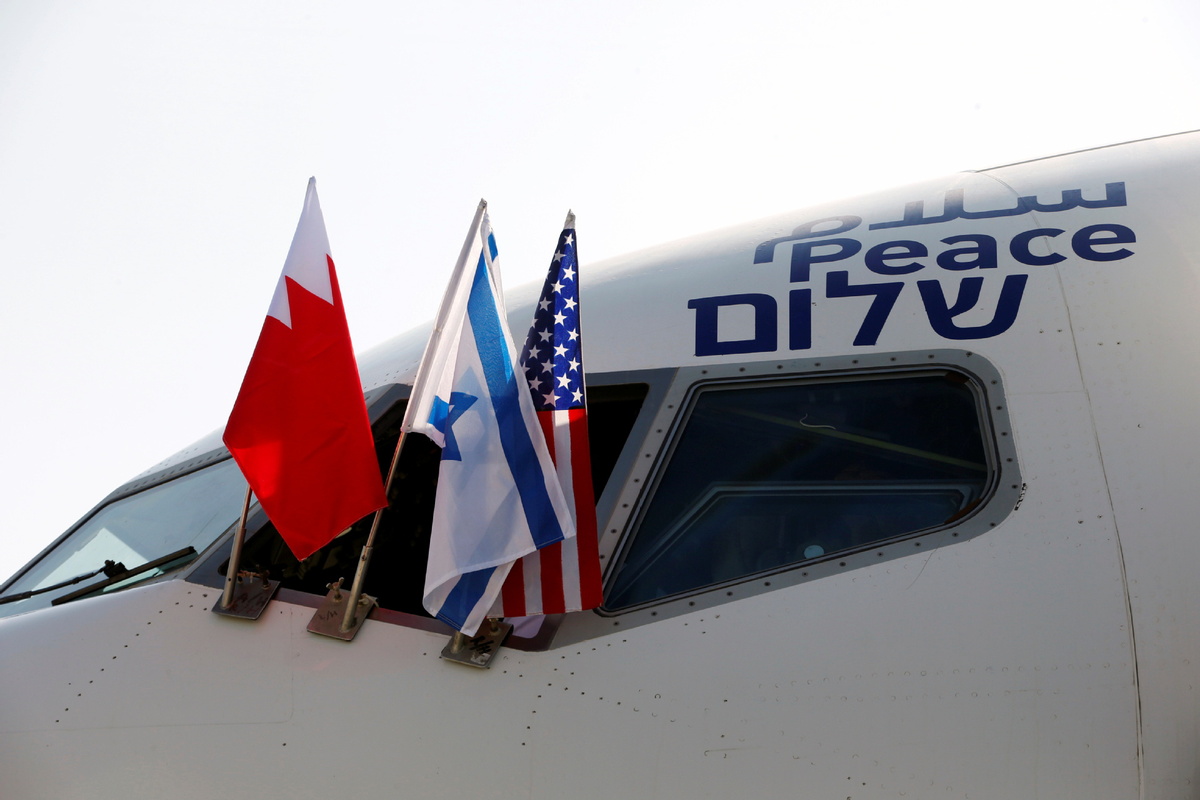Israel, Bahrain sign off on diplomatic ties
By JULIAN SHEA in London | China Daily | Updated: 2020-10-20 09:20

Bahrain has become the fourth Arab country, after the United Arab Emirates, Egypt and Jordan, to establish diplomatic ties with Israel, following the visit of an Israeli delegation to the Gulf state on Sunday.
The breakthrough paves the way for the countries to open embassies and appoint ambassadors, and comes one month after a similar agreement was reached with the UAE. Egypt's and Jordan's ties with Israel go back further, to treaties signed in 1979 and 1994, respectively.
"It was indeed a historic visit, to start opening relations between both countries, to have fruitful bilateral relations in both fields," Bahrain's Foreign Minister Abdullatif al-Zayani said at the signing ceremony.
"Today we made the first formal step in bringing closer ties between the countries," added Meir Ben Shabbat, national security adviser to Israeli Prime Minister Benjamin Netanyahu.
"We were accepted with open arms, with warmth and cordiality," he continued, adding "we started the day as friends and we're concluding it as family members".
The Israeli delegation flew through the airspace of Saudi Arabia on their way to the signing ceremony, something which in itself could be seen as a sign of change.
Palestinian opposition
The move has not been without its critics, though, especially from Palestinians who have long seen a resolute, unified approach from all Arab nations as the best way of pursuing their vision of an independent state of their own.
The Times of Israel quoted the document signed as saying the countries will "continue their efforts to achieve a just, comprehensive, and enduring resolution to the Israeli-Palestinian conflict", but without a commitment to Palestinian statehood or a two-state solution.
The Palestinian leaders have criticized the agreement for the "great harm it causes to the inalienable national rights of the Palestinian people and joint Arab action", having already recalled their ambassador from Bahrain.
The United States played a role in bringing the deal about, and the Palestinians have already abandoned links to Washington, accusing it of bias toward Israel.
In May 2018, the US moved its embassy in Israel to Jerusalem, a decision that delighted Israel but was described by Palestinian President Mahmoud Abbas as a "slap in the face".
























